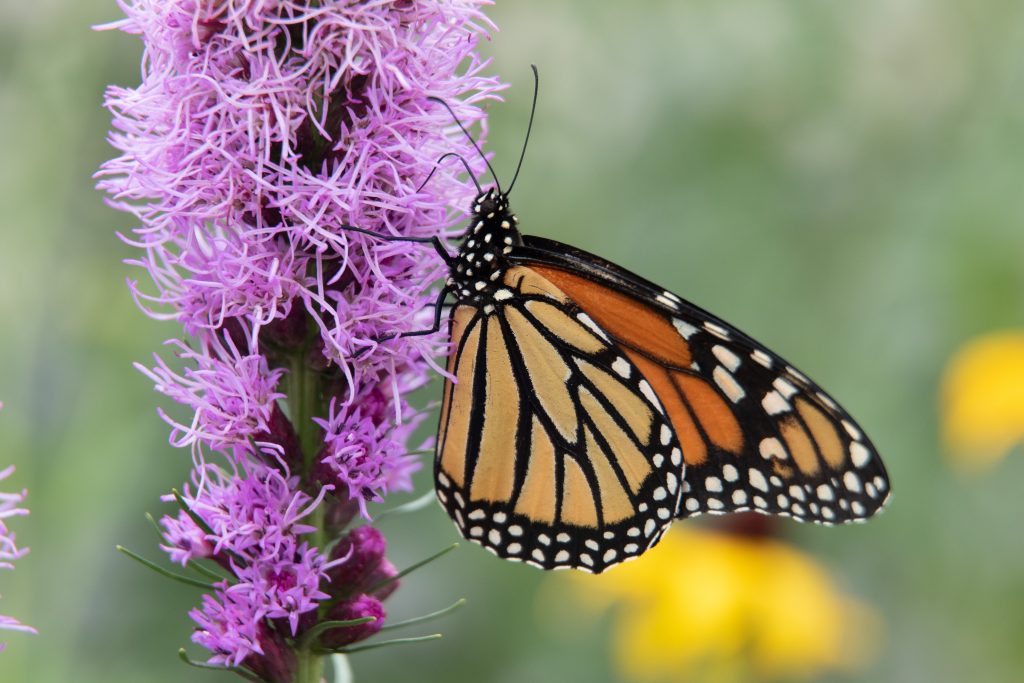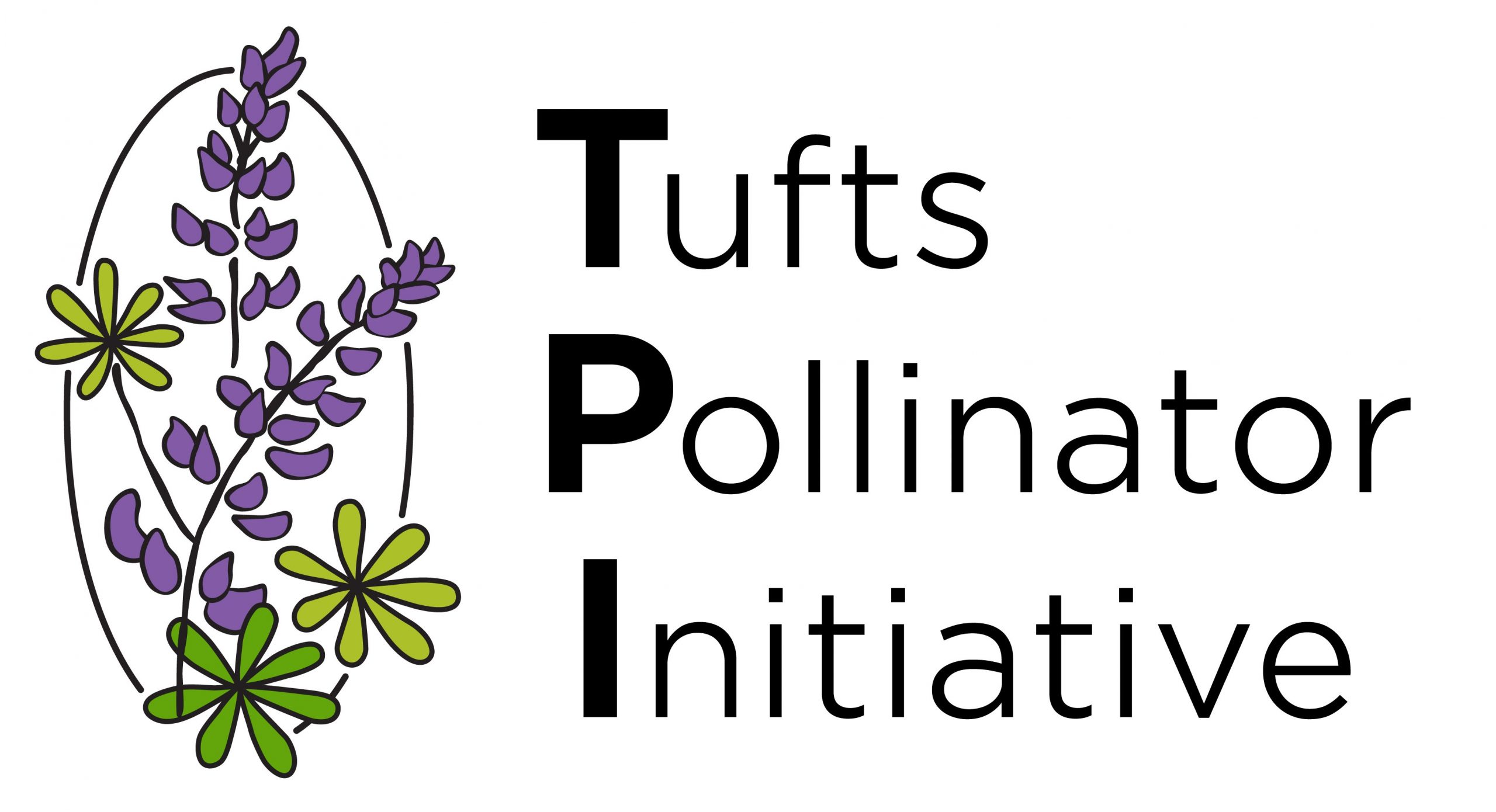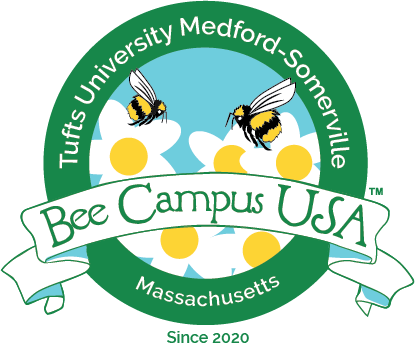
TPI is excited to announce that we have reached our goal: Tufts University Medford-Somerville has become the first urban educational institution in Massachusetts to be certified as an affiliate of the Bee Campus USA program! Bee Campus USA is designed to marshal the strengths of educational campuses for the benefit of pollinators via the creation of pollinator habitat, service-learning projects, and educational programming.
Funded by the Tufts Green Fund in 2019, we created TPI as an ecological, educational, and collaborative effort to bolster pollinator health and promote community awareness on the Medford-Somerville campus. If you’ve been keeping up with our blog, you may have heard that we have planted three pollinator-friendly gardens on the Medford-Somerville campus, which provide forage for pollinators from May through October. In just one year, we reached over 2,000 people via public-facing events such as Tufts Community Day, workshops, lectures, and the recent screening of The Pollinators. We have also advised pollinator conservation efforts at other universities in the Boston Area (e.g. Lesley University, Northeastern University) as well as other Tufts campuses. In this year’s round of Green Fund projects, the Sustainability Committee at the School of Museum of Fine Arts (SMFA) at Tufts was awarded funds to create pollinator-friendly gardens on their Boston campus. We cannot wait to help the SMFA Sustainability Committee create signage and select plants for their gardens!
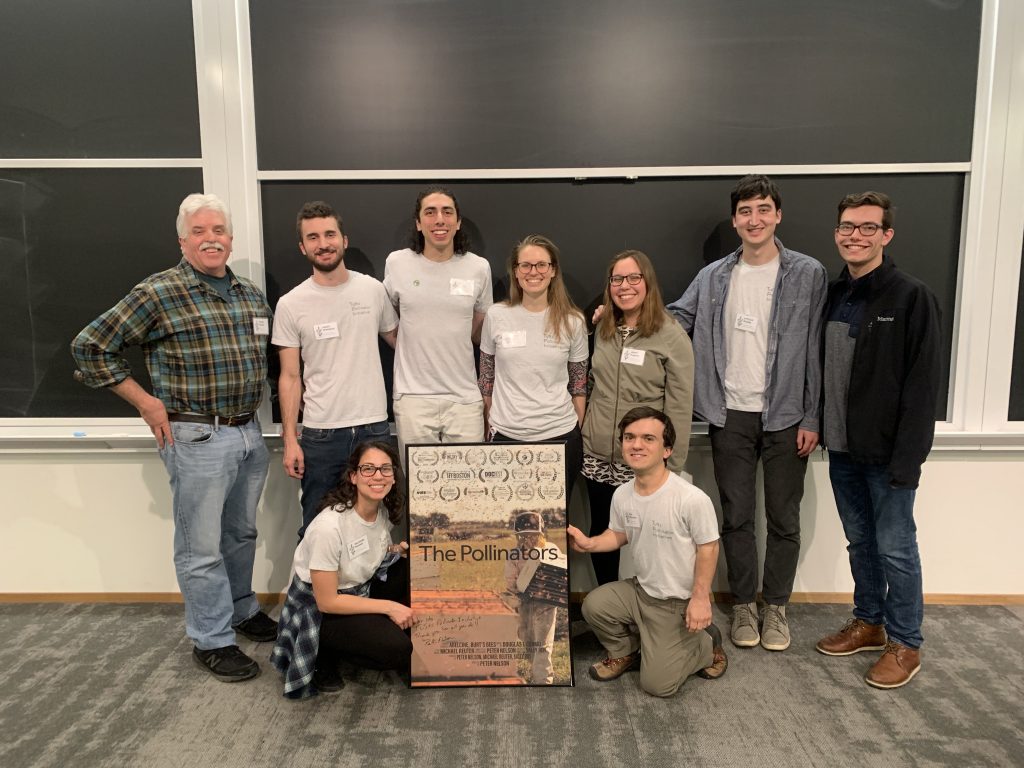
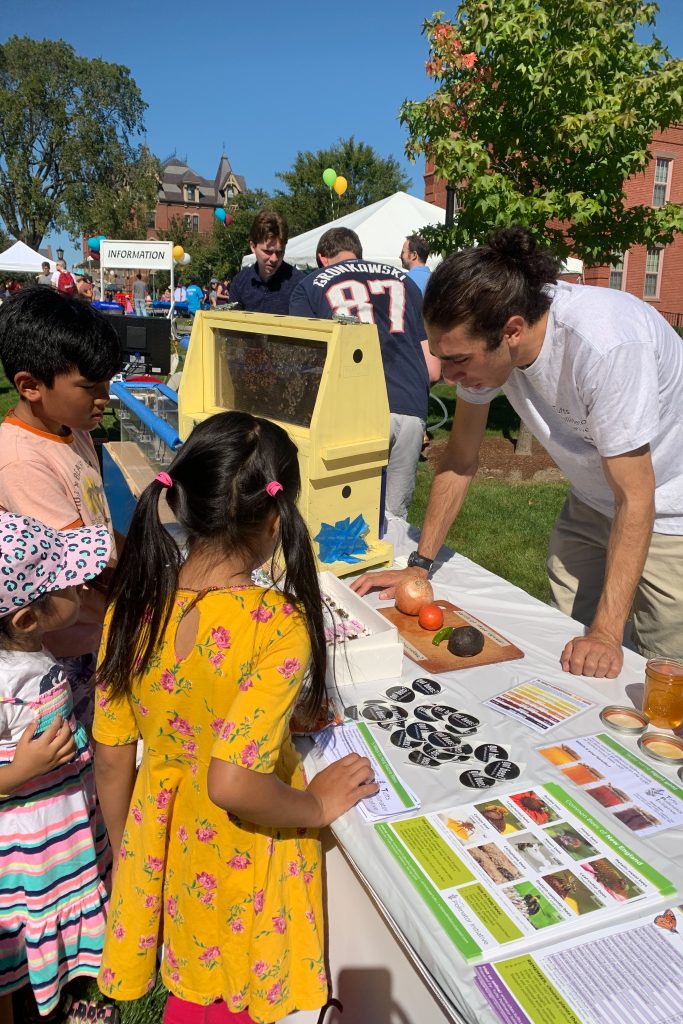
Elizabeth Crone, Professor of Biology and TPI member, is excited about the opportunities for student research and service-learning with the Medford-Somerville gardens: “In the same way that National Parks were a new idea in the early 1900’s, urban pollinator gardens are the next frontier for conserving insect diversity in the 21st century.” Our on-campus pollinator gardens have already been integrated into a Tufts undergraduate-level course, “Insect Pollinators and Real-world Science,” where students visited a garden and created their own pollinator-specific planting guides. We are now working to create undergraduate research projects to survey pollinator biodiversity and the food resources (nectar and pollen) the gardens provide, and recently created an iNaturalist Project for community scientists interested in contributing biodiversity data.
Bee City USA and Bee Campus USA are initiatives of the Xerces Society for Invertebrate Conservation, a nonprofit organization based in Portland, Oregon, with offices across the country. Bee City USA’s mission is to galvanize communities and campuses to sustain pollinators by providing them with healthy habitat, rich in a variety of native plants, i.e. food resources for pollinators. Animal pollinators such as bumble bees, sweat bees, mason bees, honey bees, butterflies, moths, beetles, flies, hummingbirds and many others are responsible for the reproduction of almost ninety percent of the world’s flowering plant species. In fact, one in every three bites of food we consume is thanks to animal pollinators, specifically insects!
“The program aspires to make people more PC—pollinator conscious, that is,” said Scott Hoffman Black, Xerces’ executive director. “If lots of individuals and communities begin planting native, pesticide-free flowering trees, shrubs and perennials, it will help to sustain many, many species of pollinators.”
We would like to thank to the Tufts Green Fund for funding this project, the Garden Club of America for their support, and our current and past members for helping us toward our goal! As a certified Bee Campus USA, we will continue doing outreach, education, and research, and spreading the pollinator love!
